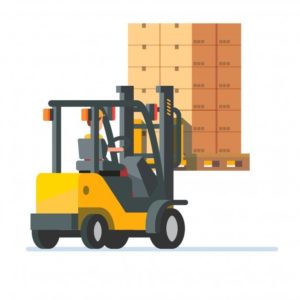Material Handling is such a vast topic in itself that it could take a hundred pages and we would still be covering only different definitions according to different industries. Let us leave that job to Google and confine our discussion to Material Handling practices in Manufacturing Industries. Material Handling in Manufacturing refers to the movement of any kind of material/load within the limits of shop floor or at the most to the transportation vehicles or warehouses.
The manufacturing industries underwent a drastic transition during the Industrial Revolution in 18th -19th century, thereby raising the need for proper material handling. Since then the material handling practices have continuously evolved in a number of ways.
With that in mind let us briefly look at the most commonly used practices worldwide
- Manual Labor: Although mechanization has reduced the amount of manual labor in manufacturing industries globally, it is still a preferred way for porting in developing countries like ours especially in smaller industries. According to statistics, India ranks second in terms of highest manual labor employed.
- Conveyor Systems: Conveyor belts are the most commonly used systems in production industries since they are suitable for transporting all kinds of material including bulky or light in larger numbers. Conveyors definitely reduce the time taken for transporting material within a factory as compared to manual labor.
- Forklifts: Forklift is an industrial truck with a forked platform which is used to lift and then move heavy loads within the shop floor. Forklifts provide flexibility over conveyor systems, since forklifts are manually driven and can be used to transport material along any path, which may or may not be prefixed.
- Industrial trolleys and vehicles: Industrial Trolleys on shop floor generally refer to regular trolleys which are required to be pushed by a person or an industrial vehicle like a small truck, a small commercial vehicle etc. These are used to move materials in smaller industries through various stages or departments.
Although there are so many material handling technics being practiced widely, the industries still have to face loads of challenges, while being literally challenged to transport the loads across their shop floors. Let us now turn our focus towards these challenges:
- Labor Cost is an overhead for most of the manufacturing industries be it labor for lifting or transporting or the labor required for operating forklifts and other vehicles. There is little value addition to the product.
- Safety is another major concern for all the material handling executives, because of the high percentages of forklift accidents. Sometimes, workers even get run over by the trolleys or come under industrial vehicles getting seriously injured. Studies suggest there are around 61,800 forklift injuries every year in the US alone.
- Loss in Productivity because of delays caused where manual labor is involved or because of a breakdown of an equipment or a conveyor is another severe problem for most of industries.
- Inefficiency caused by human errors is inevitable and a major hindrance in the path of progress. Material handling is no exception to it.
- Unnecessary Fuel Costs for the forklifts, pulling trucks and other industrial vehicles also need to be accounted for as an overhead cost and thus a burden for material handling.
Material Handling is thus an inseparable part of any manufacturing industry. And as seen above, the challenges in the current material handling practices only incur in losses for the industries consequently making it an inescapable burden. One good solution to this issue is considering Autonomous systems for material handling instead of the current systems having manual interference. We will eventually discuss about such autonomous systems and their implementations in further articles, but for now we would like you to ponder over these challenges which, who knows even you might also be facing!





10 Comments
Warehouse Equipment nj
That’s really an informative post. I appreciate your skills, Thanks for sharing such an informative post.
Kelvin
This is really useful, thanks.
Luke
Thank you for the terrific post
Candice Eisenhower
It’s interesting to know that there are several practices and types of material handling in transporting goods from one shop to its destination. I believe it’s important for companies to have unified learning of this to avoid inefficiencies that will cause a delay in operations and flow of income. If I were a factory owner, I’ll make sure to have my workers undergo training towards the efficient use of good quality equipment that I’ll be buying from a reputable company.
Nadia
Thank you for the great article
3M 9542v
Impressive! Thanks for the post.
Best regards,
Balle Griffin
ปั้มไลค์
Like!! Great article post.Really thank you! Really Cool.
3M 9542V
This is a helpful article. I surely can enrich my knowledge by reading
this. Your idea is actually outstanding. Thank’s toshare withe
us such an important thing.
Best regards,
Balle Griffin
9003V
I believe this is an informative article
and it is extremely useful and knowledgeable.
I truly enjoyed reading this postBigig fan, thank you!
Best regards,
Boswell Henneberg
admin
Thank you so much. Do keep reading our blogs and giving us feedback.